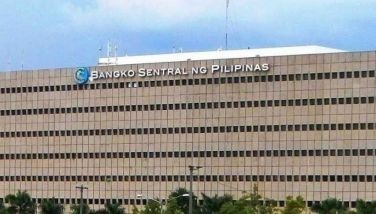Building on the Philippines' Yes attitude

Last week, the Concepcion Clan, composed of about 60 of us from the second to the fourth generation, had our annual shareholders’ meeting in Macau. Normally, we reach about a hundred, but many of the fourth generation had exams. It is a practice to get all generations involved. We do not only discuss issues about Concepcion Industries (Carrier, Condura and Kelvinator brands of air-conditioner and refrigerators), we also talk about family legacy, values and advocacies. Concepcions, being so argumentative, takes so much time in discussions, so we brought in strong moderators who can control the discussion flow.
Imagine 60 Concepcions checking in and out of the airport and the hotel. You can only picture the confusion of those people in the counters, as most of us bear not only the same surname but also first names. My cousins’ names from one branch all start with Raul.
For most of us, it was our first time in the ‘new’ Macau. Hotel rates have dropped very much. We stayed at the Four Seasons. The hotel was 30 percent occupied, and we were half of that. It was like a ghost town when we went around the huge Venetian and Four Season’s malls. The nearby buildings being constructed for more hotels, casinos, etc. were all on a standstill. Some of them were 60 percent done. There was no tight traffic on the streets.
The last time I was in Macau, which was maybe 15 years ago, it was so different. Prior to the world financial crisis, Macau was like the place for a gold rush. People just had to be there to start projects. Since the financial crisis started, you can see that it has affected Macau in a very big way. The Chinese Government even controlled the number of times a mainland China citizen can go to Macau. I guess they did this to control their gambling habits.
The Sands owner Sheldon Adelson, who also owns the Venetian, faces a big financial challenge. Las Vegas has been hit with the financial crisis, and his projects in Asia starting with Macau and Singapore are burdened with heavy cash requirements.
Looking at all these, the Philippines is still lucky, or shall we say, blessed. I am starting to see a number of columnists who write positive points about the Philippines’ future. Some are even saying that small is beautiful. What do they mean? Well, the Philippines has a relatively small economy compared to economies in the world. The Asian financial crisis affected us quite severely early on, as shown in the disappearance and merging of many banks like Far East, PCI, Urban, Citytrust, among others. It led to more stringent banking standards, requiring collaterals on most loans and being very conservative on values placed on collaterals. The Philippines was even the last to come out of the Asian crisis. And this has somehow left a great deal of discipline to many financial institutions and companies. Passing through that crisis was like graduating with a doctorate degree on crisis management.
Most CEOs, including myself running RFM Corp., were not spared from the crisis. But, we learned a lot. However, those were still scary times. In a way, you can say that the growth rate in the Philippines was moderate, primarily because lending and expansion were done with relatively more caution. On the other hand, those countries who thought there was no end to a bull market and which loosened their lending policies suffered to a greater degree.
We saw bigger countries, with bigger economies, and bigger corporations, that were hit much more as cheap money flourished. They had Triple A rating from the different agencies like Moody’s, Standard and Poor. They had very good growth rates as a country and company. The cheap money pushed them to invest even in non-core businesses. Financial derivatives became so tempting for many to increase the returns.
One can ask whether or not the growth of America over the past years was for real? As this was all funded by cheap capital, and lending excessively to consumers that pushed savings rate to extreme low levels. They became a credit card society, so obviously growth was funded. Now without this cheap capital, can America and other countries sustain this growth? Worst is that many of the central banks, in order to save the economy from catastrophe, have to push for stimulus spending. It is debatable and this is why a number of lawmakers in American Congress are hesitant in approving such a stimulus package as it does not solve the problem in the long term.
That is what Asia did right, specially the Philippines. We credit BSP as they required banks and companies to strengthen their balance sheets and some had to go into merger. People suffered huge financial losses earlier to teach them to be careful and avoid risks. It taught many Filipinos earlier on not to borrow in dollars that are not hedged. Definitely a lesson I learned in this Asia crisis. It taught us all to manage our borrowings and insure long term loans and capital to support long term projects. So the financial discipline came with pain. No stimulus package was done. We had to ride through the whole thing. The rest of Asia took about three years, and the Philippines took five years. For me this is why we are a much stronger country today. This observation was validated with the recent report that Moody’s has raised to Positive rating its outlook for the Philippines, while S&P said that government finances had
improved, bringing gains to Peso and the Philippine bond.
These are all part of the negosyantes’ learning process: financial discipline and a more focused economic program. We see a clearer picture on the Philippine business model which now leans towards Services sector, as opportunities still abound through the BPO’s and call centers. Now, English is given priority in schools, which is essential in being one of the world’s largest service providers. There are even English teaching services done online.
I am not saying that Filipinos will not feel the financial crisis, as the people I talked to who are working in Macau are concerned about their jobs since a number has been sent home. It was still amazing to see many Filipinos OFWs in the hotel, and even in the downtown restaurants. But good to note the Filipinos are always the last to be sent home, if at all. This is why I feel the Philippines will continue to do well. We have learned from past mistakes.
Going back to our family conference, when we touched on our vision for the Philippines, each of our advocacies was discussed. My father’s role in NAMFREL has evolved and he now helps the organization to advocate for electoral reforms and computerization. My uncle Raul continues to have his advocacy on consumer oil price watch which has been expanded to include other essential commodities. I believe his vision is to go beyond price watch and to push for greater transparency in stock situations. On our Go Negosyo advocacy, we aim to change the mindset of many Filipinos into one that is positive and entrepreneurial, as the key for many Filipinos to move up in life. Our approach this year is to replicate this effort and encourage more Negosyo champions from local government officials, to push for a stronger negosyo climate that will create more income opportunities and eradicate poverty in their areas. My brother John’s new advocacy is to help fight hunger around the country, as he now helps the Bayan Anihan project of GK. They have developed a very good food production model that can be adopted by communities or individual families, whether or not under the GK program. In the end, this will ensure food on the table of every family participating, and the model allows other corporations/individuals to help those in need.
Somehow, all these advocacies are efforts to help bring back hope, and help bring about a better Philippines and better lives for the Filipinos. Let’s continue to light the candle of hope and have the Yes attitude.
* * *
For feedback, email me at [email protected] or thru SMS at 09189656333. For free business advice, visit www.gonegosyo.net. Watch the Go Negosyo Bigtime Show in its new home, QTV, every Saturday and Sunday 8 to 8:30 a.m., with replays in NBN every Sunday 9:15 to 10 p.m.]
- Latest
- Trending





























